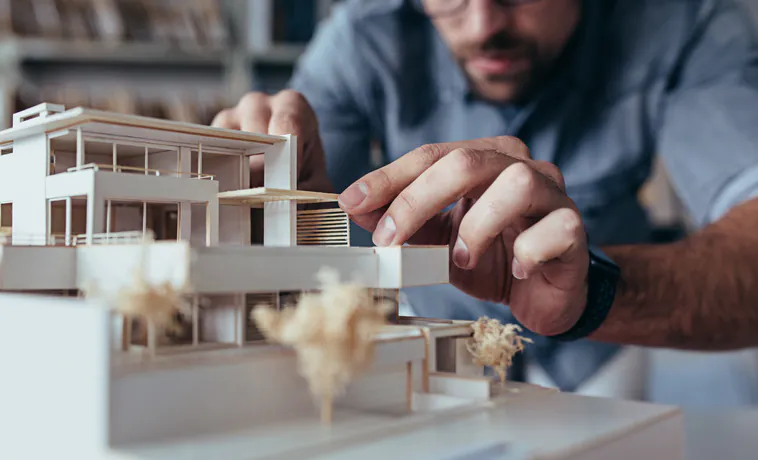The latest BNC UAE Construction Analysis report, published in November 2017, values active construction projects at USD 818.2 billion (AED 3 trillion). This accounts for 33% of total value and 52% of all construction activity in the GCC region as a whole. All active construction projects in the GCC region come out to a staggering USD 2.43 trillion (AED 8.91 trillion).
The combined 11,755 UAE construction projects helped the country claim the title as the second largest construction market in the MENA region.
With statistics like that it’s no surprise the UAE is ranked as the most attractive MENA country to conduct business with. The World Bank’s “Ease of Doing Business” tool assesses the attractiveness of global economies for investors, entrepreneurs, and B2B businesses. Globally the UAE is ranked 26th (2017), which is a huge jump from their place at spot 34 (2016).
Short-Term UAE Construction Sector Analysis
The UAE construction sector, especially in Dubai, will be the key driver of non-oil commodity growth. With preparations for the Expo 2020 event, many new infrastructure projects are underway. Some of these UAE construction infrastructure projects include metro expansions, roads, and bridges. According to the BNC report, there are about 533 utility projects (USD 93.6 billion), 655 industrial projects (USD 87.4 billion), 493 transport projects (USD 87.4 billion) and 92 oil and gas projects (USD 68.2 billion) on the go. Urban development, however, came in at a whopping 9,972 construction projects (USD 537 billion) in the UAE.
The UAE construction sector as a whole is forecasted to grow at an average rate of 6% between 2017-2020 before slowing down to about 4.6% between 2021-2026, according to BMI Research. A lot of the current UAE construction projects are aimed at keeping up with Expo 2020 demands, which explains why the growth rate will drop after that year. The projects that are dedicated to the event are valued at about USD 3 billion. Other iconic UAE construction projects are in leu as well, like the world’s biggest mall development at Dubai Creek Harbour, estimated at USD 4 to 5 billion.
Must Read: Top 10 Construction Companies in Dubai (2018)
The Global Competitiveness Report conducted by the World Economic Forum ranks the UAE as the following:
- ranked 1st overall regionally
- ranked 17th overall globally
- ranked 1st in ‘road quality’ index
- ranked 3rd in ‘airport infrastructure and means of air transport quality’ index
- ranked 4th in ‘seaport infrastructure quality’ index
- ranked 4th in the ‘quality of infrastructure’ index
- ranked 20th in the ‘innovation and sophistication factors’ pillar
Trends Affecting the UAE Construction Sector
There are many trends surrounding the growth of the UAE construction sector. Tourism is a big one. People from all over the world travel to the UAE to gain the Dubai experience, so it’s no surprise that Dubai is considered the top global tourism city in the world. Between 1990 and 2013, travel and tourism’s GDP contribution expanded 268%.
Expo 2020 is also a big factor affecting UAE construction projects. Dubbed the Expo Effect, the positive economic impact of development projects correlated to Expo 2020 is expected to be worth USD 940 billion and will be spread out over the next five years.
Another trend impacting UAE construction is Smart Cities. This strategy will be implemented across the UAE with a major focus on Dubai. By 2021, the UAE government plans on making Dubai the world’s smartest city. Everything from smart transportation solutions to free, pan-city high-speed Wi-Fi will be implemented to help enhance Dubai’s reputation and investment capabilities. About 1,000 government services will be smart-enabled, 2,000 wifi hotspots will be installed and a savings of USD 5.9 billion is expected from Dubai’s new transportation initiatives. This strategy is meant to attract global businesses, tourists, and workers.
New laws are also impacting the UAE construction sector. The vital ones include:
- Obtaining construction permits based on new risk-based inspections that are merged with the final inspection in the process of obtaining a completion certificate.
- Reduction in duration of a single fixed-term contract from 48 to 24 month.
- Reduction of the time required to obtain a new electricity connection by implementing a new program with stricter deadlines for reviewing applications, carrying out inspections and installing smart meters.
- Strengthening minority investor protections by increasing shareholder rights and role in major corporate decisions, clarifying ownership and control structures, and requiring greater corporate transparency.
- Easier to register a property by increasing land registry transparency.
- Streamlining new business name reservations and articles of association notarization and merging registration procedures with the Ministry of Human Resources and General Pensions and Social Security Authority
Investing in UAE Construction
Experts are forecasting trade in Dubai to rise dramatically as a result of Expo 2020 and the city is already seeing results. Within the first nine months of 2016, Dubai’s non-oil foreign trade topped nearly USD 260 billion. This is up 10% as compared to the same period in 2015. Dubai Trade predicts this figure will reach USD 1.09 trillion by 2020.
The UAE real estate market is also quite attractive for local and foreign investors. According to Bayut.com’s recent report, the average return-on-investment (ROI) in Dubai has remained consistent at 4.7% in H1 2017 despite rent and sale prices dropping by nearly 10%. The company does say that both property prices and rent will rise from continued investment in infrastructure, diversification of the economy and Expo 2020.
Investments picked up at the end of November 2017 with USD 2.9 billion awarded to construction contracts for nearly 50 projects, and USD 111.9 million awarded to almost 100 non-construction contracts. More than half went to small and medium-sized enterprises. Private development projects also experienced significant building efforts to match the Expo timeline.
Major real estate developments are set to launch in conjunction with the Expo, including the District One neighbourhood at the USD 10 billion Mohammed Bin Rashid Al Maktoum City, USD 545 million to the Dubai Water Canal Project, USD 3 billion to Al Habtoor City project and then there’s the major Dubai Creek Harbour project as well.
Read More:
- Delivery Services Taking Over UAE Food and Beverage Market
- Upholstery Fabric Suppliers in Dubai: Top Technical Textile Source



